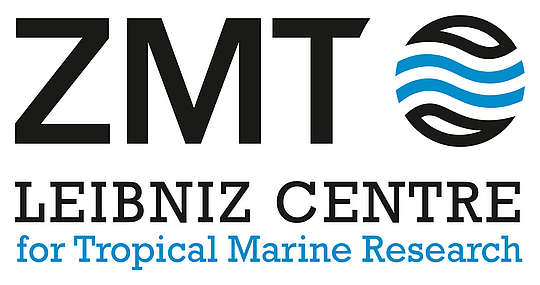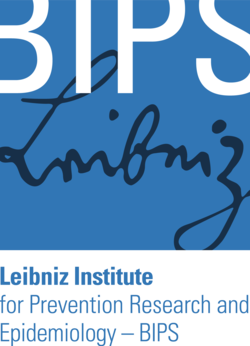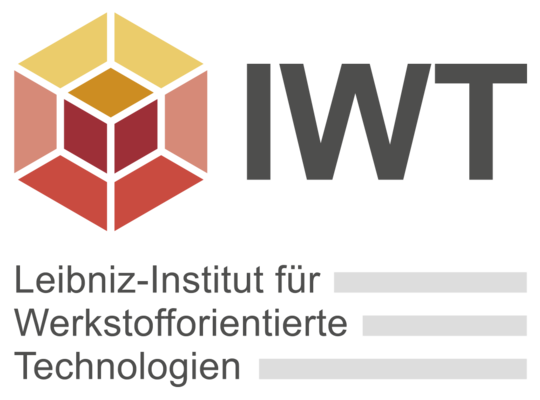Cooperative professorships are professorships, which are appointed at the university and which provide research and teaching in the disciplines of the University of Bremen. The special feature is that, as a "joint appointment", they also have a leading function in science and science management in a non-university research institution. Cooperative professorships are thus evidence of the very good scientific cooperation and the institutional interlacing of the work of the University of Bremen and its non-university partners. They thus strengthen the cooperation as well as the development of the partners in a sustainable manner.
The co-operation professor's model is particularly successful in Bremen. Together with the members of the Bremen Research Alliance, more than 40 cooperative professorships were established.
Our Cooperation Professorships
Prof. Dr. Wolfgang Ahrens, Epidemiological Methods

Wolfgang Ahrens is Professor of Epidemiological Methods at the Department of Mathematics and Computer Science at the University of Bremen. He is Deputy Director of the Leibniz Institute for Prevention Research and Epidemiology - BIPS and head of the Division of Epidemiological Methods and Causes of Causes. His research aims to identify the causes of non-communicable diseases in the general population as well as the primary prevention and evaluation. One focus of his epidemiological studies is in the field of occupational and environmental cancer, as well as the etiology of health problems such as obesity and overweight in children and adolescents. He coordinates the large pan-European IDEFICS / I.Family cohort of children and is a scientific board member of the NAKO health study in Germany.
Prof. Dr. Krasimira Aleksandrova, Methods in Molecular Epidemiology
Krasimira Aleksandrova is the deputy head of the Department of Epidemiological Methods and Etiological Research at the Leibniz Institute for Prevention Research and Epidemiology – BIPS as well as professor of methods in molecular epidemiology at the University of Bremen. Her main research areas are molecular epidemiology, chronic illnesses, and the role of nutrition, lifestyle, and metabolism as modifiable health factors.
Prof. Dr. Rudolf Amann, Microbial Ecology

Rudolf Amann is a microbiologist and researches the diversity and ecology of microorganisms in the sea. He is Professor of Microbial Ecology at the Department of Biology / Chemistry at the University of Bremen and Director at the Max Planck Institute for Marine Microbiology (MPI). He heads the Department of Molecular Ecology there. For this purpose he develops molecular techniques with which bacteria and archaea can be identified and quantified. He also investigates the role of microorganisms in global biogeochemical cycles.
Prof. Dr. Maarten Boersma, Experimental Marine Ecology

Maarten Boersma is a professor at the Department of Biology / Chemistry at the University of Bremen and Head of Ecology at the Alfred Wegener Institute Helmholtz Center for Polar and Marine Research (AWI). It examines the interactions within the plankton and how they are influenced by stress conditions. The main focus of his work is in the field of phytoplankton zooplankton with the particular focus on the differences in the quality of different algae species and growth conditions within a species on the condition and reproduction of the zooplankton.
Prof. Dr. Antje Boetius, Geomicrobiology

Antje Boetius is a polar and deep sea researcher and professor of geomicrobiology at the Department of Geosciences at the University of Bremen. She is Director of the Alfred Wegener Institute Helmholtz Center for Polar and Marine Research (AWI), Head of the Helmholtz Max Planck Bridge Group for Deep Sea Ecology and Technology between the Alfred Wegener Institute Helmholtz Center for Polar and Marine Research (AWI) and the Max Planck Institute for Marine Microbiology (MPI) and on the Executive Board of the Excellence Cluster MARUM University of Bremen. Antje Boetius is mainly concerned with the effects of climate change on the biogeochemistry and biodiversity of the Arctic Ocean. With her working group, she is investigating the role of microorganisms in the sea as well as the ecological consequences of human intervention in the deep sea.
Prof. Dr. Thomas Brey, Functional Ecology

Thomas Brey is professor at the Department of Biology / Chemistry at the University of Bremen and head of the Department of Biosciences at the Alfred Wegener Institute Helmholtz Center for Polar and Marine Research (AWI). His research area is marine ecology with the focus on ecosystem functions and their importance for ecosystem services. Important aspects are the importance of taxonomic, functional and trophic biodiversity for ecosystem functions, the effect of climatic and anthropogenic drivers and the variability of these relationships in space and time.
Prof. Dr.-Ing. habil. Matthias Busse, Close-fitting manufacturing technologies

Matthias Busse is a professor of near-final manufacturing technologies in the Department of Production Engineering at the University of Bremen. Since 2003, he has been head of the Fraunhofer Institute for Manufacturing Technology and Applied Material Research IFAM in Bremen, the Institute for Forming and Functional Materials. The institute develops tailor-made material solutions with optimized production processes and processes. The spectrum of research work ranges from the material through the shaping to the functionalization of components and systems.
Prof. Dr. Vanessa Didelez, Statistics

Vanessa Didelez is Professor of Statistics with a focus on Theory and Methods in Causality Research at the Department of Mathematics and Computer Science at the University of Bremen and Deputy Head of the Department of Biometry and Computer Science at the Leibniz Institute for Prevention Research and Epidemiology - BIPS. Her research focuses on specific statistical methods for applications in biometrics, medicine, genetics and social sciences, which can be used to plan future intervention studies. This method research is ultimately relevant to decision-making in the public health sector, in particular with regard to preventive measures and strategies.
Prof. Dr. Hansjörg Dittus, Space Systems

Hansjörg Dittus is a professor at the Department of Production Technology at the University of Bremen, was the founding director of the DLR Institute for Space Systems (DLR) until 2011, and is currently the chairman of the German Aerospace Center, V. in Cologne. He is currently assigned to the 16 DLR Space Engines. He is a recognized and acknowledged specialist in gravitational and fundamental physics in space and the related technology developments.
Prof. Dr. Nicole Dubilier, Microbial Symbioses

Nicole Dubilier is a marine biologist, deep sea researcher and professor of microbial symbioses at the Department of Biology / Chemistry at the University of Bremen. She is also Director of the Max Planck Institute for Marine Microbiology (MPI) and head of the symbiosis department there. Together with their employees and employees, they are investigating the ecological and evolutionary adaptations that form the basis for close partnerships between bacteria and invertebrate marine life. Their research contributes significantly to the understanding of symbioses and their importance for the ecosystem of the sea.
Prof. Dr. Olaf Eisen, Glaciology
Olaf Eisen is a professor at the Department of Geosciences at the University of Bremen and Director of the Field Glaciology Working Group and Deputy Section Head of Glaciology at the Alfred Wegener Institute Helmholtz Center for Polar and Marine Research (AWI). His main focus is on the application of geophysical methods to explore ice characteristics and processes in the Antarctic, Greenland and alpine glaciers. In addition, he is committed to conveying facts about climate change and foreseeable consequences.
Prof. Dr.-Ing. habil. Rainer Fechte-Heinen, Material Engineering/Metals
Rainer Fechte-Heinen is Professor of Material Engineering/Metals at the University of Bremen. In addition he is Chairman of the Board of Directors of the Leibniz Institute for Material Engineering – IWT, and Director of the Bremen State Institute for Material Testing. His research focus is on metal materials, their production, thermal treatment, coating, and characterization.
Prof. Dr. Stephan Frickenhaus, Technical Mathematics in Earth System Sciences
Stephan Frickenhaus is Professor for Technical Mathematics in Earth System Sciences at University Bremen. He is Head of the Computing and Data Center at the Alfred-Wegener-Institute Helmholtz Center for Polar- and Marine Research and Speaker of the Competence Centre for High Performance Computing Bremen, BremHLR.
Prof. Dr. Frank-Oliver Glöckner, Earth System Data Science

Frank Oliver Glöckner is Professor for Earth System Data Science at the Department of Geosciences at the University of Bremen. He is head of data at the computing center of the Alfred Wegener Institute, Helmholtz Center for Polar- and Marine Research (AWI) and Adjunct Professor for Bioinformatics at the Jacobs University Bremen. He is head of the information system PANGAEA. His highly interdisciplinary team of geologists, biologists, engineers and software developers located at the AWI and MARUM - Center for Marine Environmental Sciences at the University of Bremen has a national and international proven track record in research data management, data logistics and data science. Our integrated data driven view enables transforming the wealth of heterogenous information into new knowledge for innovation and policy advice.
Prof. Dr. Matthias Günther, Physics of Imaging

Matthias Günther is a professor at the Department of Physics / Electrical Engineering at the University of Bremen as well as head of MR imaging at Fraunhofer MEVIS. He has been involved in MRI research and development for over 20 years and has extensive experience in various medical imaging procedures. He holds several patents on sophisticated MR sequences and image processing algorithms and enjoys an excellent reputation in the field of arterial spin labeling (ASL) techniques.
Prof. Dr. Christian Haas, Physics of the Sea Ice
Christian Haas is a professor at the Department of Physics / Electrical Engineering at the University of Bremen and Head of Sea Science at the Alfred Wegener Institute Helmholtz Center for Polar and Marine Research (AWI). Its research area is the investigation of the role of sea ice for the climate and ecosystem and for human activities in the polar regions by means of observation and interpretation of sea ice variability and change by means of in-situ and aircraft measurements, satellite remote sensing and modeling.
Prof. Dr.-Ing. Horst K. Hahn, Digital Medicine

Horst Hahn is Professor for Digital Medicine at the Department of Mathematics and Computer Science at the University of Bremen and Institute Director of the Fraunhofer Institute for Digital Medicine MEVIS. His scientific and technological work addresses the digital transformation of medicine on the basis of multidisciplinary data integration and modern machine learning methods.
Prof. Dr. Ulrike Haug, Clinical Epidemiology and Pharmacological Epidemiology

Ulrike Haug is Professor of Clinical Epidemiology and Pharmacological Epidemiology at the Department of Human and Health Sciences at the University of Bremen and Head of the Department of Clinical Epidemiology at the Leibniz Institute for Prevention Research and Epidemiology - BIPS. Her research focuses on cancer prevention and cancer prevention, as well as on drug discovery.
Prof. Dr. Anna-Katharina Hornidge, Social Sciences in the Marine Tropics

Anna Hornidge is a professor at the Department of Social Sciences at the University of Bremen. At the Leibniz Center for Marine Tropical Research (ZMT), she heads the Social Science Department and the Working Group "Development and Knowledge Sociology". She is researching in the following areas: "Marine science, discourse and technology research", "Coastal transformation research" and "Ocean-related future research". Furthermore, she is researching in translation processes in the management of sea-level rise and thus globally communicated solution strategies and their adaptation and further development in the local contexts of Manilas, Singapore and Jakarta.
Prof. Dr. Angelika Humbert, Ice Sheet Modeling

Angelika Humbert is a professor at the Department of Geosciences at the University of Bremen and Director of Glaziology at the Alfred Wegener Institute Helmholtz Center for Polar and Marine Research (AWI). Her work deals with the modeling of ice sheets and ice shelves in Greenland and Antarctica using multi-physical models on hybrid scales, process studies, system studies, predictions, ice-ocean interaction, subglacial hydrology and remote sensing.
Prof. Dr. Thomas Jung, Physics of the Climate System

Thomas Jung is a professor at the Department of Physics / Electrical Engineering at the University of Bremen and head of the Climate Dynamics Section at the Alfred Wegener Institute Helmholtz Center for Polar and Marine Research (AWI). It deals with the analysis, modeling and prediction of the climate system. A major focus is on the role of polar regions in the Earth system. Prof Jung is the spokesman of the AWI research program and heads up various large national and international projects.
Prof. Dr. Torsten Kanzow, Physical Oceanography of the Polar Seas
Torsten Kanzow is Professor of Physical Oceanography of the Polar Seas in the Faculty of Physics/Electrical Engineering at the University of Bremen as well as Head of the Climate Sciences Division and Head of the Section Physical Oceanography of Polar Seas at the Alfred Wegener Institute Helmholtz Center for Polar- and Marine Research (AWI) in Bremerhaven.
Prof. Dr. Sabine Kasten, Sediment Diagenesis
Sabine Kasten heads the Marine Geochemistry section at the Alfred Wegener Institute Helmholtz Center for Polar- and Marine Research (AWI) and is Professor for Sediment Diagenesis in the Faculty of Geosciences at the University of Bremen.
Prof. Dr. Marcel Kuypers, Biogeochemistry

Marcel Kuypers is Professor of Biogeochemistry at the Department of Geosciences at the University of Bremen as well as Director and Head of the Department of Biogeochemistry at the Max Planck Institute for Marine Microbiology (MPI). In his research he deals with the metabolic pathways, the interactions and regulatory mechanisms of microbial processes in the sea. The aim of his research is to provide a better understanding of the processes affecting the chemistry and biology of the sea, which are of decisive importance for climate and climate models.
Prof. Dr. Thomas Laepple, Earth Systems Diagnostics
Thomas Laepple is professor of earth system diagnostics at the University of Bremen. His appointment was made in cooperation with the Alfred Wegener Institute Helmholtz Centre for Polar and Marine Research (AWI). The core of his research consists of the characterization of the conditions and dynamics of earth systems based on geological and instrumental data in order to better predict the future developments under the influence of humans.
Prof. Dr. Gerrit Lohmann, Physics of the Climate System

Gerrit Lohmann is a professor at the Department of Physics / Electrical Engineering at the University of Bremen and Head of Paleoclimadynamics at the Alfred Wegener Institute Helmholtz Center for Polar and Marine Research (AWI). One focus of his research is the identification of driving mechanisms for climate change on long time scales. This includes conceptual and theoretical approaches, complex numerical models of the Earth system, as well as statistical analyzes of observations and geoscientific data.
Prof. Dr.-Ing. habil. Lutz Mädler, Production Engineering
Lutz Mädler is Professor of Production Engineering at the University of Bremen and Member of the Board of Directors at the Leibniz Institute for Materials Engineering - IWT.
Prof. Dr. Bernd Mayer, Polimeric Materials

Bernd Mayer is Professor of Polymer Materials in the Department of Production Engineering at the University of Bremen. Since 2010 he is head of the Fraunhofer Institute for Manufacturing Technology and Applied Materials Research IFAM in Bremen, Institute for Adhesive Bonding Technology and Surfaces. The focus is on research and development work on the entire spectrum of bonding, plasma and lacquer technology, adhesion and interfacial research as well as automation and production technology with the aim of supplying application-oriented system solutions to the industry.
Prof. Dr. Gesine Mollenhauer, Organic Sedimentology

Gesine Mollenhauer is a professor at the Department of Geosciences at the University of Bremen and is the scientific director of the MICADAS 14C laboratory at the Alfred Wegener Institute Helmholtz Center for Polar and Marine Research (AWI). It uses organic geochemical methods and component-specific 14C dating to study the carbon cycle and climate in the past and today. It works primarily with marine sediments and particles from the water column, especially in the ocean regions of the high northern latitudes.
Prof. Dr. Iris Pigeot, Statistics focusing on Biometrics and Methods of Epidemiology

Iris Pigeot is a professor at the Department of Mathematics and Computer Science at the University of Bremen. She is Director of the Leibniz Institute for Prevention Research and Epidemiology - BIPS, where she heads the Department of Biometrics and Computer Science. Her research focuses on biometric methods, graphic models, genetic epidemiology and the use of secondary data in pharmaceutical safety research as well as primary prevention and evaluation, especially childhood obesity.
Prof. Dr. Hans-Otto Pörtner, Marine Biology of Polar Latitudes

Hans-Otto Pörtner is a professor at the Department of Biology / Chemistry at the University of Bremen and Head of Division Integrative Ecophysiology at the Alfred Wegener Institute Helmholtz Center for Polar and Marine Research (AWI). His research interests include the effects of climate warming, oceanic acidification and the hypoxia of marine mammals and ecosystems with a focus on the relationships between ecological, physiological, biochemical and molecular mechanisms that limit tolerance and the design of biogeography and ecosystem function.
Prof. Dr. Claudio Richter, Ecology of Marine Animals
Claudio Richter is a professor at the Department of Biology / Chemistry at the University of Bremen and head of the section Bentho-Pelagic Processes (BPP) at the Alfred Wegener Institute Helmholtz Center for Polar and Marine Research (AWI). His research on the ecology of corals and sponges, exchange processes, fine-scale disturbances and climate change is located in the program focus areas "Large scale variability and change in polar benthic biota and ecosystem functions" and "Interface processes and physical dynamics of the coastal ocean".
Prof. Dr. Andreas Rittweger, Space Technology

Andreas Rittweger is a professor at the Department of Production Technology at the University of Bremen and Director of the DLR Institute for Space Systems (DLR). He is a recognized expert in aerospace engineering. DLR in Bremen designs, analyzes and evaluates future spacecraft and space missions in terms of their technical performance and costs. In addition, the institute develops, builds and operates its own spacecraft and missions for scientific investigations and technology demonstrations.
Prof. Dr. Ruth Schilling, Maritime History
Ruth Schilling is Professor of Maritime History within the History Department at the University of Bremen and Managing Director at the German Maritime Museum Leibniz Institute for Maritime History (DSM).
Prof. Dr. Michael Schlüter, Marine Geochemistry
Michael Schlüter is member of the Marine Geochemistry section at the Alfred Wegener Institute Helmholtz Center for Polar- and Marine Research (AWI) and Professor for Marine Geochemistry in the Faculty of Geosciences at the University of Bremen.
Prof. Dr. Ralf Tiedemann, Geoscientific Paleoclimatic Research

Ralf Tiedemann is a professor at the Department of Geosciences at the University of Bremen and Director of Geosciences at the Alfred Wegener Institute Helmholtz Center for Polar and Marine Research (AWI). His work deals with paleoumum reconstructions on different time scales, mainly in polar latitudes, which react particularly sensitively to climate fluctuations. Reconstructions are based on geochemical analyzes of marine sediment archives.
Prof. Dr. Björn Rost, Phytoplankton Ecophysiology
Björn Rost is Professor for Phytoplankton Ecophysiology in the Faculty of Biology/Chemistry at the University of Bremen and Head of the Marine Biogeosciences Section at the Alfred Wegener Institute Helmholtz Center for Polar- and Marine Research (AWI).
Prof. Dr. Friedrich Widdel, Microbiology
Friedrich Widdel is Professor of Microbiology at the Department of Biology / Chemistry at the University of Bremen and one of the founding directors of the Max Planck Institute for Marine Microbiology (MPI). As the head of the microbiology department, he is primarily concerned with the microorganisms involved in the carbon, nitrogen, sulfur and iron cycle of the sea. His research focuses on the anaerobic decomposition of long-lived substances such as hydrocarbons and the physiology of sulfate oxidizing and reducing bacteria.
Prof. Dr. Matthias Wolff, Marine Synecology / Fishing Biology

Matthias Wolf is a professor at the Department of Biology / Chemistry at the University of Bremen and Head of the Department Theoretical Ecology and Modeling at the Leibniz Center for Marine Tropical Research (ZMT). In his research, he focuses on, among other things, To the areas of ecosystem-based fishery modeling and ecology and population dynamics.
Prof. Dr. Marvin Wright, Machine Learning in Statistics
Marvin Wright is Professor of Machine Learning in Statistics at the University of Bremen and Leader of the Emmy Noether Junior Research Group: Beyond Prediction - Statistical Inference with Machine Learning at the Leibniz Institute for Prevention Research and Epidemiology - BIPS.
Prof. Dr. Hajo Zeeb, Epidemiology

Hajo Zeeb is Professor of Epidemiology at the Department of Human and Health Sciences at the University of Bremen and Head of the Department of Prevention and Evaluation at the Leibniz Institute for Prevention Research and Epidemiology - BIPS. His research focuses not only on the evidence base in public health, but also on the epidemiology of chronic diseases. He is particularly interested in the health of migrants and the importance of environmental risk factors such as ionizing radiation.
Prof. Dr. Martin Zimmer, Mangrove Ecology

Martin Zimmer is a professor at the Department of Biology / Chemistry at the University of Bremen and head of the mangrove ecology group at the Leibniz Center for Marine Tropical Research (ZMT). Its field of work includes scientific foundations for the understanding and protection of mangroves worldwide.
Prof. Dr. Daniela Fuhr, Prevention and Evaluation

Daniela Fuhr is Professor of Implementation Research and Evidence-Based Prevention at the Department of Human and Health Sciences at the University of Bremen and Deputy Head of the Department of Prevention and Evaluation at the Leibniz Institute for Prevention Research and Epidemiology - BIPS. Her research interests include the development and implementation of low-threshold brief psychological interventions, focusing on depression, anxiety disorder, and alcohol abuse. Much of her research focuses on vulnerable populations; in Germany, but also internationally.












